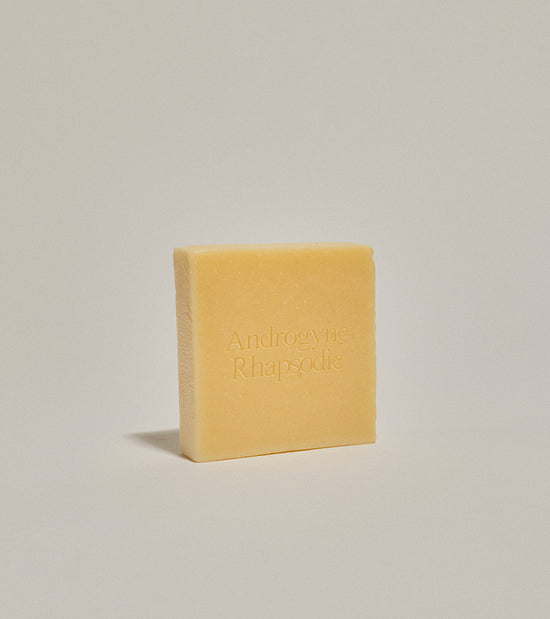Marissa Zappas
Marissa Zappas is a New York based independent perfumer. Within this simple statement there lies a fabulous world of olfactive artistry, fanciful compositions, beauty redefined and unapologetic aura of feminine romance. Marissa’s perfumes are of course for everyone, but the dreamy creativity lends them a beautiful Sarah Moon aura.
Marissa was doing her masters in Anthropology, looking at the ways the history of perfume crisscrossed death and funereal rituals and the design/construction of cemeteries. Aromatic materials and odour have played an entwined role with death for centuries. The word perfume is derived from the Latin per fumum, (through/via smoke), referring to smoky fumes from burning resins, balms, spices, and woods lifting prayers and supplications from altars to the skies above.
Materials like myrrh, rosemary, melted beeswax, plant oils, tar and elemi resin were used to mummify bodies in Ancient Egypt and there are extant tomb paintings that display the custom of ceremonial perfume wax cones worn on the head and elaborate wigs. The heat caused the wax, usually scented with myrrh, to melt and radiate scent. Fear of diseases like the plague and cholera led to people thinking it was spread by miasmas in the air and a variety of herbs, spices and resins were utilised in pomanders, nosegays, masks and dosed liberally on handkerchiefs to ward off illness. Dwellings were fumigated, simple fragranced waters splashed liberally in courts and hovels alike.
At Versailles, city of a court, the collective odours of courtiers, poor hygiene, wigs, and lack of sanitation could be overpowering. Royal Mistresses like Madame de Pompadour scented gorgeous porcelain blooms to delight the King in private chambers. Marie Antoinette was genuinely fascinated by flowers and scent appointing a court perfumer and apothecary called Jean Fargeon who created exclusive perfumes and scented novelties for her and her favourites. It is hard not to think of this olfactive indulgence as another symbolic way of avoiding the stench of agitating unhappy lives outside the palace. The air must have smelled very different for the Queen in prison and on her bitter abusive journey to the scaffold, hands tied, wig-less and pelted with garbage.
We strive to be cleansed, purified. There has always been an incantatory hoodoo side to perfume and odours. As perfumery entered its golden age in the 1920s and 1930s, the act of wearing scent became highly charged and eroticised, speaking volumes about the wearer. From vulgarity to luxurious and elegant diffusion, perfume became an essential part of the toilette.
Men wore perfume a lot more up to and during that time, strong roses, musk, animalic scents, but these were replaced by the zing of sunny citrus compositions and the green, bathroom clean vibe of mossy fougères. Anything too floral might be viewed with suspicion and disdain, especially after the graphic trial of Oscar Wilde.
Today we are drowning in perfume releases, flankers a go-go, and a plethora of copycat scents keen to steal a little reflective glow. Strictly monitored Pattern Formulae, deadlines, client briefs and an aggressive awareness of material cost drive cheaper and more haute perfumes alike. The advantage of indie perfume composing is a freedom of imagination and ability to inhabit a world of their choosing. Big houses like Lancôme, Dior, Chanel, Esteé Lauder and Guerlain rarely make anything avant-garde as they have much to lose. Occasionally something appears from them that seems out of context, Mugler’s Alien, the original Dior Homme, Insolence by Guerlain and the classy beauty of Chanel’s Exclusifs line.
It falls to independent perfumers and those smaller haute-luxe lines with room to experiment and explore a more elemental and adventurous approach to olfaction. The noses are often the brand and often come to perfumery from other disciplines. Marissa is no exception, there is always something compelling about indie noses whose brands are often reflections of themselves and their milieu. It is something they can indulge in, exploring themes and materials in ways that perhaps contractual and brief-led perfumers do not always have the freedom to do so. Perfumery is an over-attended party, often feeling like one of those stories of house parties that go horribly awry with parents away and parties gate-crashed by social media alerted crowds. Few will emerge unscathed.
There is room though for everyone to have ideas and ambition and while there is perhaps a perceived increased sense of freedom for independent and artisan perfumers, there is the added pressure of creating and selling a collection of perfumes that need to stand out for the right artistic reasons. Smaller makers also have relatively less resources and margin for error than the bigger stalwart Houses. It is possible to hit perfume fatigue sometimes. Too much choice, favourite perfumes discontinued or reformulated beyond recognition. A corrosive cheapening of bottles and materials and the buying power of Middle Eastern, Russian and the booming tastes of Chinese consumers looking for novelty.
But it is the character of the smaller artistic brands that makes all the difference, the persona of owners and makers can be more emotive and experimental. Marissa’s poetic and anthropological approach to perfumery has resulted in an eclectic collection full of unique themes and a delicate sensuality. Her work collides a vintage Hollywood boudoir vibe with botanical observation and floral biography. There are some key perfumes in the line, Flaming Creature, Maggie the Cat is Alive! I’m Alive, and Annabel’s Birthday Cake. This trio, while unconnected thematically, are linked by Marissa’s mix of erudition, kitsch, and imagination.
The other perfumes are like a collection of varied and engaging short stories, Marissa the poet-author beguiling us with olfactive musings. There is a sense of joie de vivre throughout Marissa’s work, a genuine love of aromas, effects and imaginative composition that allow joyful play and serious perfumed poetry.
The scents have moments of frivolity and gimcrack addiction, but make no mistake, Marissa Zappas is seriously talented, understanding that the flesh can be robed in perfumes that exalt and decorate our hankering for impact and difference.

